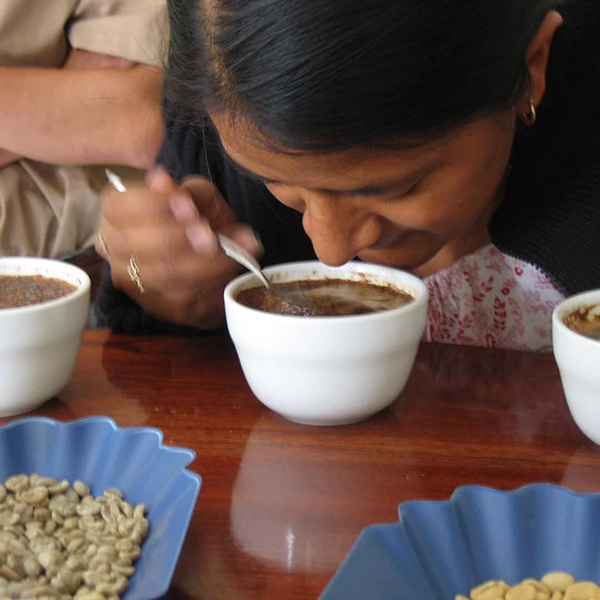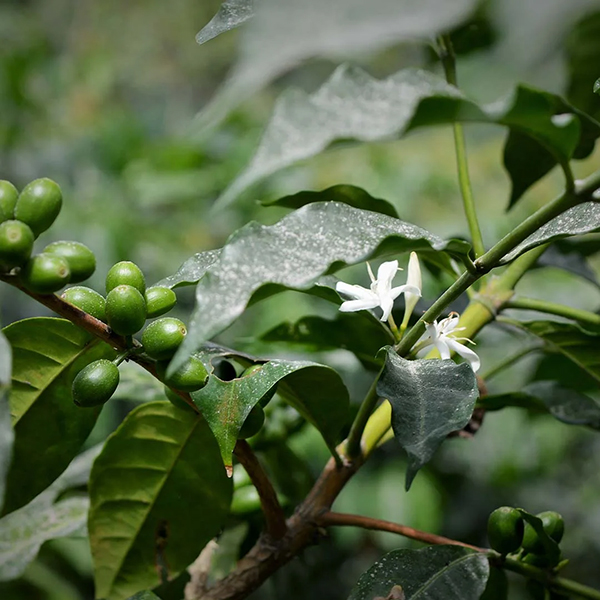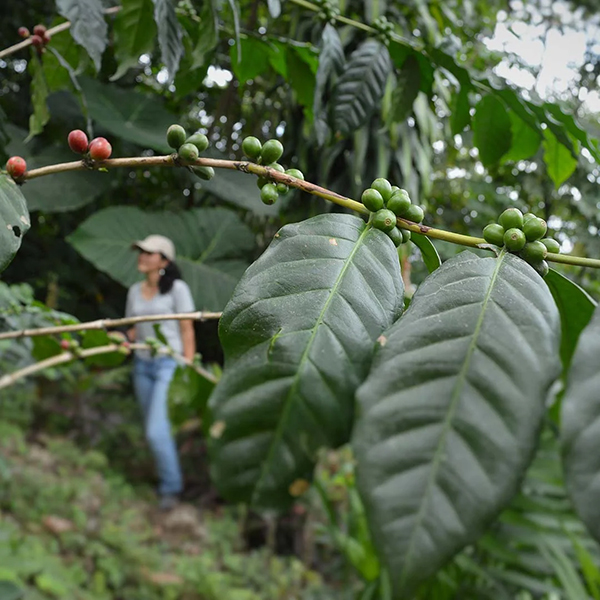Description
Fair Trade Cooperative: Manos Campesinas
FLO ID# 711
Manos Campesinas took root in 1996, born from a vision of collaboration and empowerment. Today, it brings together 13 farmer cooperatives spread across the highland departments of San Marcos, Quetzaltenango, Sololá, and Chimaltenango—an alliance representing more than 1,200 dedicated farming families. Focused on creating lasting value for its members, Manos Campesinas prioritizes fair compensation and reinvests the majority of its earnings into expert agricultural guidance and support. Fiercely autonomous, the organization takes pride in a resilient, self-reliant economic model—intentionally distancing itself from dependency on foreign aid or international NGOs.
Their mission is deeply rooted in seven guiding principles: upholding social equity, delivering exceptional quality, protecting the environment, promoting gender equity, and embracing sustainable practices. With these values at the core, Manos Campesinas aims to be the global go-to for coffee—not just for its rich flavor, but for the integrity behind every cup and the meaningful change it fosters in farming communities.
Cooperative Coffees primarily sources beans from the fertile volcanic landscapes of San Marcos, where cooperatives thrive in the nutrient-rich soils between the Tajumulco and Tacaná volcanoes. Our relationship with APECAFORM—the Maya-Mam Association of Smallholder Organic Coffee Growers—remains strong. APECAFORM was the first to export organic fair trade coffee through Manos Campesinas, marking a powerful beginning to a legacy of ethical trade and community-focused agriculture.
Coffee Production in Guatemala: A General Overview
Guatemala is a major producer of arabica coffee, with cultivation occurring primarily in high-altitude regions ranging from 1200 to 2000 meters above sea level. The country’s diverse microclimates, volcanic soils, and distinct wet and dry seasons contribute to optimal growing conditions for specialty-grade coffee.
Coffee production is distributed across multiple departments, including San Marcos, Huehuetenango, Chimaltenango, and Quetzaltenango. The majority of farms are smallholder-operated, with plots typically under 5 hectares. Shade-grown methods are common, often incorporating native tree species to preserve biodiversity and reduce soil erosion.
Harvesting occurs annually, primarily between November and April, with selective hand-picking used to ensure ripeness. Post-harvest processing includes wet (washed) methods as the predominant technique, involving pulping, fermentation, washing, and drying, either sun-dried on patios or via mechanical dryers.
Guatemalan coffee is known for high acidity, medium body, and complex flavor profiles, often with notes of citrus, chocolate, and florals—attributes influenced by elevation, varietal, and processing method.
Coffee represents a critical component of Guatemala’s agricultural economy, contributing significantly to export revenue and rural employment. Certification programs (e.g. Organic and Fair Trade) are prevalent among cooperatives, promoting sustainable and traceable supply chains.










Reviews
There are no reviews yet.